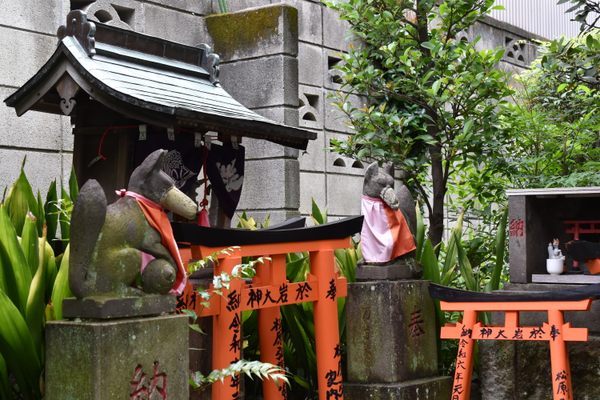Arguably the most famous Japanese ghost story of all time, Yotsuya Kaidan is a bone-chilling tale of betrayal, murder, and ghostly revenge, set in the Yotsuya district in present-day Shinjuku City, Tokyo. It has been adapted into countless theater plays, novels, films, and television dramas since the beginning of the 19th century.
The most common version of the story concerns Lady Oiwa of the Tamiya family, the wife of an abusive and unfaithful man named Iemon, who plots to get rid of Oiwa to marry another woman. After getting severely disfigured by the poison given by Iemon, Lady Oiwa loses her mind and dies a horrible death. Later, the vengeful ghost of Oiwa haunts and causes several deaths around Iemon, who is also killed at the end of the tale.
Interestingly, Lady Oiwa as well as her husband Iemon were real people and known to have had a happy marriage. It is theorized that the story was either made up by a third party who had some enmity towards the Tamiya family or confused with another anecdote in the neighborhood and exaggerated through hearsay.
If you visit Yotsuya today, you may find another interesting thing in the area: There are two Inari shrines dedicated to Lady Oiwa, almost facing each other on the same street. Known for their rivalry, these two shrines have a complex history.
One of the shrines, Oiwa Inari Tamiya Jinja, was once worshipped by the real Tamiya family, but burned down in 1879 and relocated to today’s Shinkawa area, where another Oiwa shrine can still be found. The other shrine, which is actually part of a Buddhist temple named Yōun-ji, is more recent and dates back to the first half of the 20th century. It claims to have been the site of a well used by Lady Oiwa herself, and founded an Oiwa shrine in Tamiya Shrine’s absence. Since the story was popular, especially among kabuki actors, it drew in many visitors and proved to be a lucrative business.
After World War II, in 1952, Oiwa Inari Tamiya Shrine was rebuilt in Yotsuya to reclaim the title of the original Oiwa shrine. The rivalry between the two shrines runs quite deep and lives on to this day, ignoring each other’s presence completely.

